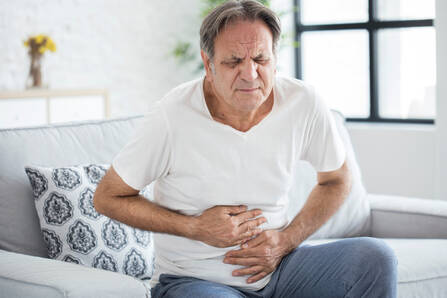C. diff (Clostridiodes difficile) is a germ that can cause infection. Contact with this germ can make you sick.
Who can get C. diff?
C. diff can affect anyone, but certain things can make getting sick more likely, including:
- Taking antibiotics for other infections
- Contact with these germs
- People aged 65 years and older
- Staying at a hospital or nursing home
Other illnesses or treatments can stop a person’s body from fighting the germs, like:
- AIDS/HIV
- Cancer
- Some medicines
What are the signs or symptoms of C. diff infection?
- Diarrhea
- Fever
- Stomach ache or cramping
- Not hungry
- Feeling like throwing up
Call your doctor if you think you have C. diff.
What will happen if my doctor says I have C. diff?
- You might need to stay at the hospital
- Your doctor will order antibiotics
- It is very important to take all of the antibiotics as prescribed
- Healthcare workers may wear a gown and gloves to make sure they don’t spread the germs to others
What can I do to stay healthy and keep others safe?
After you finish your antibiotics, you may not feel sick, but you may still be able to spread the germs to others. Do these things as soon as you are told you have C. diff, and talk with your doctor about when it is safe to stop.
- Make sure you always wash your hands with soap and water after using the bathroom and before eating
- Clean surfaces like doorknobs, toilets, dishes, and other shared items often
- Shower and change into clean clothing every day
- Wash clothing, towels, and sheets in hot water and bleach
- Try not to share a bathroom with others
- Use bleach to clean your bathroom
- Tell your healthcare providers that you have had C. diff
- Call your doctor if you feel like you are getting sick again
